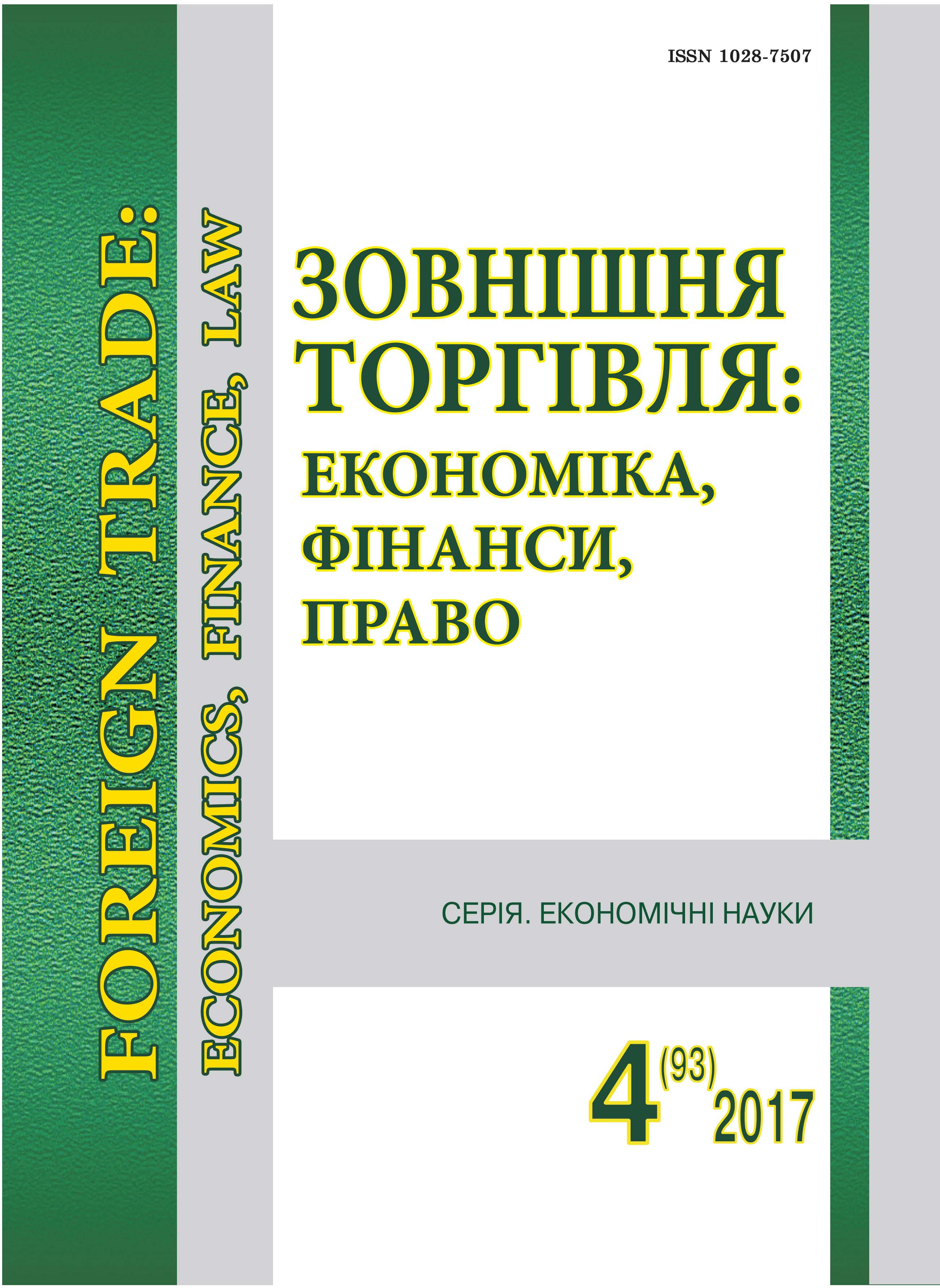The evolution of international trade
Keywords:
protectionist scenario of state regulation, liberal scenario of state regulation, cyclic evolution of international trade, mercantilism, globalization, free trade, neo-mercantilismAbstract
Background. The establishment of the United States, as the most influential economy in the world, serves as a consistent supporter of liberal policy in the field of economic management. Although the likelihood of a protectionist scenario of economic development is still small, the question remains about the theoretical possibility of its implementation in a more distant historical perspective, and then there will be problems in managing the processes of international trade.
The aim of the article is an attempt to clarify the essence of the internal nature of the historical changes associated with the cyclical character of the evolution of state regulation of international trade.
Materials and methods. In the methodology of research, the principle of particular historicism is central, according to which the objective economic laws and the corresponding principles of state policy are largely specific to each given historical epoch, but their consistent change is not chaotic, but historically deeply logical.
The results of the research. The article analyzes the periodic nature of the transition to a new cycle in the development of international trade. This historical cycle is characterized by a successive alternation of periods of state regulation and deregulation of international trade. So far, there have been two such cycles, and the possibility that we are now at the threshold of a new, third historical cycle that could begin in the more or less distant future in the case of the crisis of liberal globalization and the transition to the protectionist regulation of international trade can not be completely ruled out. Such a historical cycle always begins with a phase of active state regulation. This was the case in the mercantilist phase of the first cycle in the 16th-18th centuries, which was replaced by a phase of liberal deregulation in the nineteenth century. So it was in the first phase of the second cycle, which began at the end of the 19th century in connection with the transition from free competition to the dominance of large corporations, which was accompanied by the transition from free trade to protectionism. And now we see that the same pattern can be repeated in the future in connection with the beginning of a new, third historical cycle. It is obvious that such historical cyclicality gives the processes occurring in the world economy a deeply periodical character.
Conclusion. The main conclusion from the analysis of the evolution of international trade lies in the deeply-regular nature of the periodic repetition of the transition to a new historical cycle characterized by a sequential alternation of state regulation and deregulation of international trade. The practical conclusion for Ukraine, taking into account the possibility of a future transformation in the prevailing trends in international trade development, is linked to special requirements for economic policy.
References
Suranovic S. International Trade: Theory and Policy. Wash : Saylor Foundation. 2015. 473 р.
Landau A. The International Trade System. NY : Routledge, 2012. 425 р.
Feenstra R. C. Advanced International Trade: Theory and Evidence. Princeton : Princ. Univ. Press, 2004. 412 р.
Mazaraki A. A., Mel'nyk T. M., Insarova N. O. ta in. Zovnishnja torgivlja Ukrai'ny: ХХI st. : monografija ; za red. A. A. Mazaraki. Kyi'v : Kyi'v. nac. torg.-ekon. un-t, 2016. 600 s.
Belorus O. G., Luk'janenko D. G. i dr. Global'nye transformacii i strategii razvitija : monografija. Kiїv : Orijanу, 2000. 324 s.
Bilorus O. G., Luk’janenko D. G. ta in. Globalizacija i bezpeka rozvytku : monografija ; ker. avt. kol. i nauk. red. O. G. Bilorus. Kyi'v : KNEU, 2001. 378 s.
Strategii' ekonomichnogo rozvytku v umovah globalizacii' : monografija ; za red. D. G. Luk’janenka. Kyi'v : KNEU, 2001. 385 s.
Jurij S. I., Savel'jev Je. Novyj svitovyj ekonomichnyj porjadok: istorija, teorija, naprjamky formuvannja. Strukturni transformacii' ekonomiky: svitovyj dosvid, instytuty, strategii' dlja Ukrai'ny : monografija. Ternopil' : Ekon. dumka TNEU, 2011. S. 110–118.
Blaug M. Jekonomicheskaja mysl' v retrospektive ; per. s angl. M. : DeloLtd, 1994. 687 s.
Smit A. Issledovanie o prirode i prichinah bogatstva narodov. Klassika jekonomicheskoj mysli. M. : JeKSMO-Press, 2000. 896 s.
Rikardo D. Nachala politicheskoj jekonomii i nalogovogo oblozhenija. M. : Politizdat, 1940. 288 s.
O’Rourke K. Tariffs and Growth in the Late 19th Century. Economic Journal. 2011. Vol. 110. Р. 456–483.
Braun O. International Trade and Imperialism. New Jersey : Humanities Press Inc. and Institute of Social Studies, 2007. 412 p.
Irwin D., Terio M. Does Trade Raise Income? Evidence from the Twentieth Century. Journal of International Economics. 2012. Vol. 107. № 1. Р. 1–18.
Fukujama F. Konec istorii i poslednij chelovek. M. : AST, 2004. 412 s.
Berger Ja. M. Jekonomicheskaja strategija Kitaja. M. : Forum, 2009. 560 s.
The Economic Report of the President. Washington : U.S. Government Printing Office. 2016. 781 р.
Olevskij G. Internacionalizacija predprinimatel'stva i nacional'naja konkurentosposobnost'. Mirovaja jekonomika i mezhdunarodnye otnoshenija. 2016. № 12. S. 17–26.
Lebedeva L. F. Pozicii SShA v mezhdunarodnoj torgovle na novom jetape global'noj konkurencii. Mezhdunarodnaja torgovlja i torgovaja politika. 2016. № 1. S. 6–18.
Krasil'shhikov V. Deindustrializacija, reindustrializacija i razvitie. Mirovaja jekonomika i mezhdunarodnye otnoshenija. 2016. № 12. S. 34–43.
Rajnert Je. Kak bogatye strany stali bogatymi i pochemu bednye strany ostajutsja bednymi. M. : GU VShJe, 2012. 510 s.
Duns'ka A. Eksportno-importna dijal'nist' Ukrai'ny. Zovnishnja torgivlja. 2016. № 3 (86). S. 35–47.



